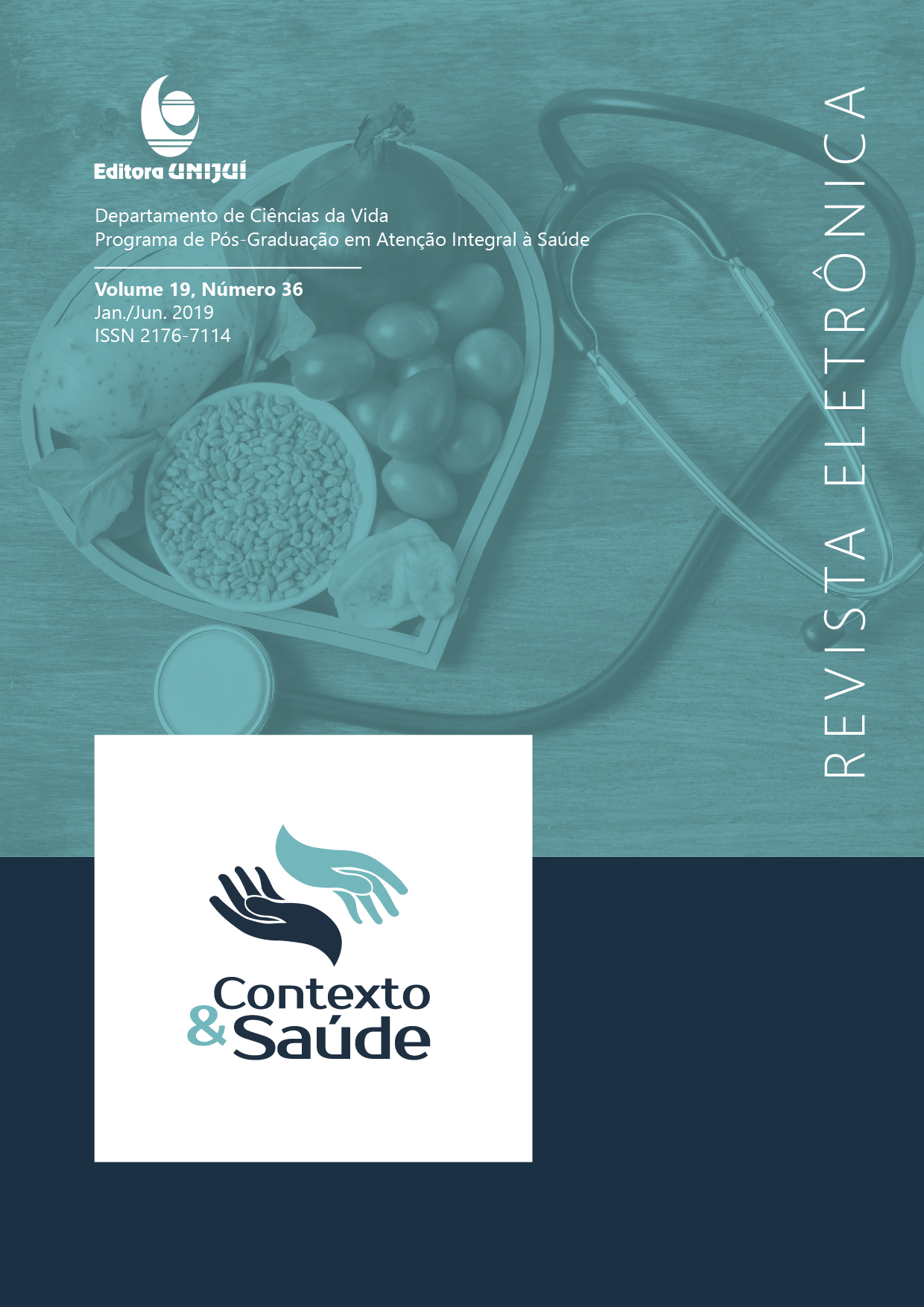AVALIAÇÃO DE CARDÁPIOS DE UMA ESCOLA DE EDUCAÇÃO INFANTIL
DOI:
https://doi.org/10.21527/2176-7114.2019.36.14-19Abstract
Este estudo teve por objetivo verificar a adequação do cardápio de uma escola municipal de educação infantil do município de Ibiraiaras – RS, com as preconizações do Programa Nacional de Alimentação Escolar. Realizou-se um estudo transversal em uma escola de educação infantil, através da avaliação do cardápio oferecido aos pré-escolares de acordo com as recomendações do PNAE e do método de Avaliação Qualitativa das Preparações do Cardápio (AQPC), e também foi verificada a aceitabilidade utilizando a escala hedônica facial. Observou-se que os cardápios oferecidos aos escolares apresentavam-se insuficientes na oferta da maioria dos nutrientes abordados pelo PNAE. De acordo com o método AQPC, pode-se perceber a oferta diária de frutas e folhosos aos alunos e uma baixa ocorrência de carne gordurosa e alimentos ricos em enxofre nas refeições. O teste de aceitabilidade foi realizado com 61 escolares, dos quais prevaleceu o sexo feminino (57%), na qual obteve-se boa aceitação pelos alunos com relação a alimentação oferecida, com média de 87% de aceitabilidade. Vale ressaltar que a alimentação oferecida na escola pode exercer influência positiva no rendimento escolar, uma vez que aumenta a capacidade de concentração dos alunos. Apesar de ter uma boa aceitabilidade, os cardápios oferecidos aos escolares devem ser revistos para adequação da oferta de macro e micronutrientes de acordo com as recomendações do PNAE, para que ofereçam os nutrientes necessários para o crescimento e desenvolvimento adequados das crianças.
Downloads
Published
How to Cite
Issue
Section
License
By publishing in Revista Contexto & Saúde, authors agree to the following terms:
The works are licensed under the Creative Commons Atribuição 4.0 Internacional (CC BY 4.0) license, which allows:
Share — to copy and redistribute the material in any medium or format;
Adapt — to remix, transform, and build upon the material for any purpose, including commercial.
These permissions are irrevocable, provided that the following terms are respected:
Attribution — authors must be properly credited, with a link to the license and indication of any changes made.
No additional restrictions — no legal or technological measures may be applied that restrict the use permitted by the license.
Notes:
The license does not apply to elements in the public domain or covered by legal exceptions.
The license does not grant all rights necessary for specific uses (e.g., image rights, privacy, or moral rights).
The journal is not responsible for opinions expressed in the articles, which are the sole responsibility of the authors. The Editor, with the support of the Editorial Board, reserves the right to suggest or request modifications when necessary.
Only original scientific articles presenting research results of interest that have not been published or simultaneously submitted to another journal with the same objective will be accepted.
Mentions of trademarks or specific products are intended solely for identification purposes, without any promotional association by the authors or the journal.
License Agreement (for articles published from September 2025): Authors retain copyright over their article and grant Revista Contexto & Saúde the right of first publication.

